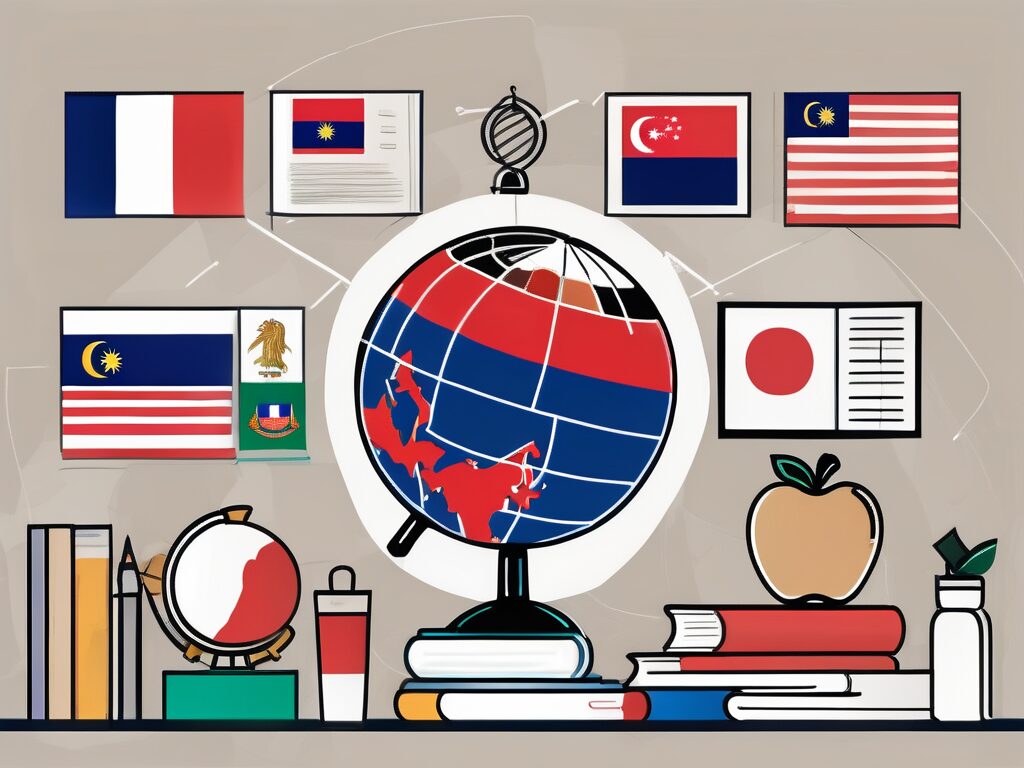The role of an international teacher, particularly one with a Master’s in Education, is a complex and multifaceted one. This is especially true in Malaysia, a country with a rich cultural heritage and a rapidly developing education system. In this article, we’ll explore four key aspects of this role, from the importance of cultural sensitivity to the benefits of advanced educational qualifications.
1. Cultural Sensitivity and Understanding
As an international teacher in Malaysia, one of the most crucial aspects of your role will be demonstrating cultural sensitivity and understanding. This is a country with a diverse population, comprising of Malays, Chinese, Indians, and various indigenous groups, each with their own unique customs and traditions.
As a teacher, it’s your responsibility to respect and appreciate these cultural differences. This could mean learning about local festivals and holidays, understanding cultural norms and etiquette, and even picking up a few phrases in the local language. Not only will this help you to connect with your students, but it’ll also enrich your own experience of living and working in Malaysia.
Comparing Cultural Sensitivity in Different Countries
It’s worth noting that the importance of cultural sensitivity isn’t unique to Malaysia. In fact, it’s a crucial aspect of being an international teacher in any country. However, the specific cultural nuances you’ll need to understand and respect will vary from place to place. For example, while in Japan you might need to understand the importance of hierarchy and respect in the classroom, in Malaysia you might need to navigate a complex mix of different cultural traditions.
2. The Importance of a Master’s in Education
While it’s possible to teach abroad with a Bachelor’s degree and a TEFL qualification, having a Master’s in Education can significantly enhance your teaching practice. This advanced degree provides a deeper understanding of educational theories, teaching methodologies, and curriculum development, all of which can be invaluable in an international classroom.
Furthermore, a Master’s in Education can also open up more job opportunities. Many international schools in Malaysia prefer to hire teachers with advanced degrees, as it demonstrates a higher level of commitment to the profession. Plus, it can also lead to higher salaries and better job security.
Comparing Master’s in Education with Other Qualifications
While a Master’s in Education is highly beneficial, it’s not the only qualification that can enhance your teaching practice. For example, a Master’s in TESOL (Teaching English to Speakers of Other Languages) can be particularly useful if you’re teaching English in Malaysia. Similarly, a Postgraduate Certificate in Education (PGCE) can provide practical teaching skills and is widely recognised internationally.
3. Adapting to the Malaysian Education System
Another key aspect of being an international teacher in Malaysia is adapting to the local education system. This system is quite different from those in Western countries, with a greater emphasis on rote learning and exam performance. As a teacher, you’ll need to understand these differences and adapt your teaching style accordingly.
However, it’s also worth noting that many international schools in Malaysia follow a British or American curriculum. This means that while you’ll need to respect the local education system, you may also have the opportunity to bring in elements of your own educational background.
Comparing Malaysian Education System with Other Countries
The Malaysian education system, like any other, has its own unique strengths and challenges. Compared to countries like Finland, which emphasises creativity and problem-solving, Malaysia’s focus on rote learning might seem rigid. However, it’s also worth noting that this system has produced high-performing students in areas like maths and science.
4. The Impact of International Teachers in Malaysia
Finally, let’s consider the impact that international teachers can have in Malaysia. By bringing in different teaching methods and perspectives, you can help to enrich the educational experience for your students. You can also contribute to the broader goal of internationalising Malaysian education, helping to prepare students for a globalised world.
However, it’s also important to approach this role with humility and respect. Remember, you’re not just there to teach, but also to learn – from your students, your colleagues, and the rich culture of Malaysia itself.
Comparing the Impact of International Teachers in Different Countries
The impact of international teachers can vary greatly from country to country. In some places, such as rural areas or developing countries, international teachers can play a crucial role in providing access to quality education. In others, like Malaysia, they can contribute to the process of internationalisation and bring in new perspectives. Regardless of where you teach, the key is to approach the role with respect, understanding, and a willingness to learn.
Enhance Your International Teaching Career with iQTS
As an international educator in Malaysia or elsewhere, you understand the importance of cultural sensitivity, advanced qualifications, and professional development. The IQTS at UWE offers the International Qualified Teacher Status (iQTS) Programme, designed to elevate your teaching credentials. Overcome the barriers of strict qualification requirements, accelerate your career progression with a notable salary boost, connect with a global community of professionals, and gain a comprehensive understanding of international curricula. Embrace the opportunity to balance your career advancement with flexible online study options. Make Your Next Step towards becoming a more adaptable, connected, and qualified international educator today.

